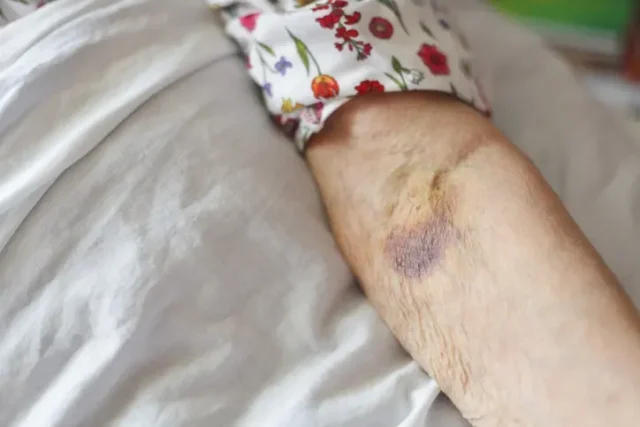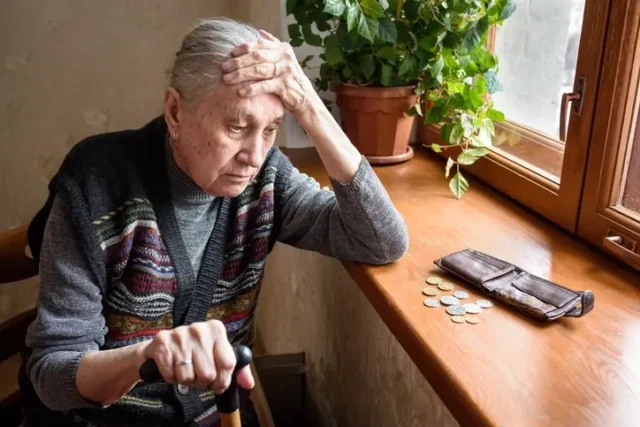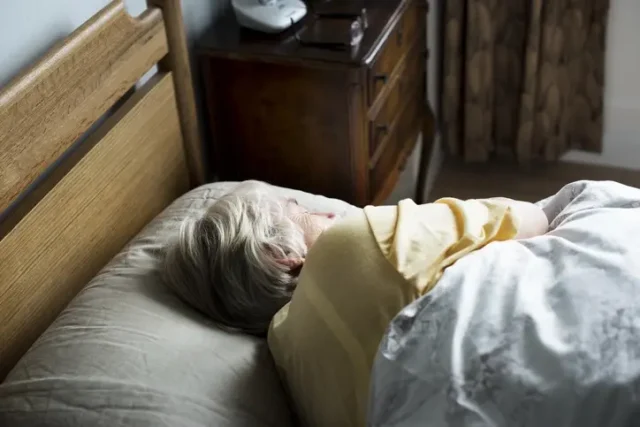The AARP ranked the state of Alabama as one of the worst places to live if you need quality nursing home care. In fact, out of all 50 states and the District of Columbia, the AARP ranks Alabama in 50th place. Unfortunately, that also means the chances for nursing home abuse in Alabama are much higher as well.
There were 12,003 reports of abuse, exploitation, or neglect in 2022 according to the Alabama Department of Human Resources (DHR). That’s an increase of 115% in elder abuse in Alabama in the last decade.
Residents in rural locations fare the worst with approximately 19.2 cases per every 10,000 adults versus 17.3 in urban settings. But city or country, these statistics are not good news for senior adults in Alabama.
However, it’s important to know that all nursing home residents have the right to a safe environment. And there are people who can help—including skilled nursing home abuse attorneys with experience handling these delicate cases.
Keep reading our guide for all the information you need to get you or your loved one assistance. Because even a single case of nursing home abuse is too many.
Free Nursing Home Neglect Evaluation
Were you or your loved ones victims of abuse? Click here to speak with a nearby attorney for FREE about your Nursing Home Neglect claim.
or call (888)-927-3080
Alabama Nursing Home Resident Rights
Nursing home residents and their loved ones should know there are federal and state laws protecting them from abuse.
Thanks to the Nursing Home Reform Act of 1987, there are federal laws in place establishing a Residents’ Bill of Rights. These include the right to a safe home-like environment and to live a dignified existence, along with many others.
The Alabama Nursing Home Association lists that all residents of the state have a right to:
- Be free from verbal, physical, mental, or sexual abuse or involuntary seclusion
- Participate in their own treatment and care plan, as well as creating advance directives like a living will
- Have their money and property protected and manage their own finances
- Enjoy freedom of choice and make their own decisions
- Privacy, this includes in their accommodations and communications
- Make complaints without fear of retaliation
- Choose the groups and activities they wish to participate
- Welcome guests for visits, as well as leaving the facility
- Have full information, in writing, of all facility services and charges, as well as the rules governing their stay
These are just some of the many rights afforded to seniors in long-term care (LTC) facilities. Residents are not powerless when deciding their long-term care, and they can speak up when treatment is abusive or neglectful.
What Nursing Home Abuse Means in Alabama
Alabama law defines nursing home abuse as:
“The infliction of physical pain, injury, or the willful deprivation by a caregiver or other person of services necessary to maintain mental and physical health.”
In Alabama, anyone age 60 or over is an “elderly person” according to Ala. Code § 38-9F-3. The term “elder abuse” pertains to all residents in that bracket.
What actually constitutes abuse, however, varies according to the type of abuse as set forth by the Alabama Adult Protective Services Act of 1976. Some cases may meet the definition of more than one type of abuse. Generally, Alabama defines abuse as:
Degrees of Nursing Home Abuse in Alabama Law
Alabama categorizes abuse and neglect in three degrees according to the Protecting Alabama’s Elders Act of 2022. These categories are arranged depending on the severity of the abuse as well as the recklessness of the abuser. Each degree has separate criminal consequences shown below:
- First Degree: If someone intentionally abuses or neglects an elderly person and their actions cause serious physical harm, that is considered elderly abuse in the first degree. This is charged as a Class A felony under Alabama law.
- Second Degree: Anyone charged with abuse or neglect in the second degree has intentionally abused or neglected an elderly person and caused physical injury. This also includes when they recklessly abuse or neglect an elderly individual. This is charged as a Class B felony under Alabama law.
- Third Degree: This degree involves recklessly abusing or neglecting an elderly individual, causing a physical injury. This also includes reckless emotional abuse as well. Third degree nursing home abuse is a Class A misdemeanor under Alabama law.
The severity of the abuse and the nursing home’s liability all affect your claim. It’s important to first consult with an attorney if you suspect abuse has hurt your loved one.
Physical Abuse

Nursing home physical abuse may take the form of punching, kicking, slapping, or any form of violence towards a patient. Physical abuse is usually easier to spot since the “damage” shows up in a tangible manner.
Another form of physical abuse common in nursing homes is the improper use of restraints to bind residents during treatments. Misusing restraints may cause muscle atrophy, bruises, or hampered mobility in nursing home residents. Watch out for the signs of physical abuse to prevent further incidents from occurring to others.
Emotional Abuse

Less obvious but oftentimes even more harmful is elder emotional abuse.
The legal definition of this type of nursing home abuse in Alabama is:
“The willful or reckless infliction of emotional or mental anguish or the use of a physical or chemical restraint, medication, or isolation as punishment or as a substitute for treatment or care of any protected person.”
Emotional abuse can be tough to uncover because many seniors are afraid to say anything for fear of retaliation. This isn’t surprising when you realize that emotional abuse in a nursing home situation often looks like:
- Humiliation
- Harassment
- Intentional embarrassment
- Intimidation
- Name-calling or insulting appearance
- Blaming for minor offenses
- Separation from other residents
The Long-Term Care Community Coalition (LTCCC) finds that speaking up is a consistent issue with emotional abuse. In their They Make You Pay interview series, it’s clear emotionally abused elders often stay silent out of fear.
Let your loved one know that nursing homes cannot retaliate against you or force you to waive your rights if you file a complaint against them. It’s vitally important for loved ones to reassure residents they have rights, so they feel safe to voice their mistreatment.
Financial Exploitation

Seniors are particularly vulnerable to financial exploitation in a nursing home. Many of them have savings, social security payments, fixed incomes, or retirement plans. As such, they become prime targets for financial abuse.
Alabama law prohibits the “expenditure, diminution, or use of the property, assets, or resources” of a senior without consent. Unfortunately, many elderly persons trust their caregivers too much and results in them being taken advantage of unscrupulously.
Key examples of financial exploitation include:
- Unauthorized use of a nursing home resident’s credit, debit, or bank card
- Changing the designations of a will or insurance policy
- Taking belongings or money from a resident’s room
Sexual Abuse

Though it’s one of the least common forms of nursing home abuse in Alabama, senior sexual abuse does still happen. In fact, 1.9% of annual LTC abuse cases fall in this category, according to the World Health Organization.
Alabama law calls these transgressions—which include rape, incest, sodomy and indecent exposure—a crime.
No matter what form, however, unwanted, non-consensual touching of a vulnerable adult is sexual abuse.
Nursing Home Neglect
Nursing home neglect technically files as a type of abuse, but it falls in its own category. This is because the actions causing neglect are unintentional as opposed to malicious. Still, the damage is palpable.
Alabama law defines adult neglect as:
“The failure of a caregiver to provide food, shelter, clothing, medical services and health care for the person unable to care for himself.”
In a nursing home setting, neglect often happens due to understaffing, which creates overworked environments rife with abuse. Labor shortage or not, it’s illegal to refuse adequate care to a nursing home resident. It’s a requirement of all licensed nursing home facilities that they meet the basic needs of their residents.
Specific examples of nursing home neglect may include:
- Failing to provide care, shelter, clothing, or food
- Ignoring an incapacitated or vulnerable adult
- Not performing prescribed necessary medical or wound care for residents
- Refusing to change residents after repeat episodes of incontinence
- Neglecting to bathe residents
- Turning off a call light or routinely not responding to resident requests
Sadly, projections anticipate neglect getting worse as the rapidly growing elderly population outpaces the number of qualified nursing home employees.
Early Signs of Nursing Home Abuse
Spotting these signs of nursing home abuse early on will help nip mistreatment before it gets worse.
It’s common for caregivers or visitors to explain away signs of abuse as “normal” symptoms of aging. That’s why it’s important to know what to look for and how abuse plays out in real time.
The U.S. Department of Justice outlines many ways that abuse may manifest. Keep all of these signs in mind when dealing with potential nursing home abuse in Alabama:
- Bruises, black eyes, welts
- Bleeding, cuts, lacerations
- Sprains, dislocations, broken bones
- Unusual changes in sleeping and eating patterns
- Emotional upset or agitation
- Personality changes, such as excessive apologizing
- Depression or anxiety
- Unexplained disappearance of funds or possessions
- Unsanitary or unclean living conditions
- Torn or dirty clothing or undergarments
- Dehydration, malnutrition, untreated bed sores, and poor personal hygiene
The sooner you recognize an abusive situation, the faster you can get help.
How to Prevent Nursing Home Abuse in Alabama
Alabama has multiple avenues you may use to prevent nursing home abuse. Alabama is also the first state to enact an elder abuse registry. HB105 or Shirley’s Law (named after financial exploitation victim Shirley Holcombe) is in place to hopefully improve protections for elders in nursing homes.
It lists caregivers or other individuals with convictions for crimes or abuse against seniors. The Alabama Department of Human Resources (DHR) maintains a database that individuals and facilities can check.
According to the CDC, another piece of the prevention puzzle is to listen to older adults and their caregivers. That is one of the best ways to understand their challenges and provide support.
How to Report Nursing Home Abuse in Alabama
HB105 also requires certain individuals and facilities to report suspected incidents of abuse within seven days to the DHR. This includes physicians, practitioners of the healing arts, and caregivers. Failure to report is a Class C misdemeanor per Alabama law.
But rather than wait for a professional to relay the abuse to authorities, you can also file complaints yourself.
The first step should always be to call 911 if there’s immediate danger to the resident. Once you ensure your loved one’s safety, you should file a complaint with the nursing home itself. All LTC facilities must maintain a policy for logging grievances. If the abuse isn’t solved, there are other Alabama resources you may use to report the incident.
For elder abuse complaints, contact the Alabama Department of Public Health (ADPH) via the ElderCare Hotline at 1-800-356-9596.
For nursing home complaints, you can utilize the ADPH online Nursing Home Complaint Form. Or, email them at [email protected].
For those who prefer a paper trail, it’s also possible to write a letter of complaint to the ADPH. Keep in mind that responses may not be as immediate as the other options, but you can address correspondence to:
ATTN: Complaint Unit
Alabama Department of Public Health
Bureau of Health Provider Standards
201 Monroe Street, Suite 700,
Montgomery, AL 36130-3017
You can also contact the Alabama Department of Human Resources. Their Adult Protective Services abuse hotline is 1-800-458-7214. Or, email them at [email protected]. They also have instructions on how to report the incident and what information to record for their investigation.
Finally, it’s a really good idea to connect with a nursing home abuse attorney. They can guide you through the process and explain the information you need to collect for a solid case.
How to Contact the Alabama Ombudsman
One other option available in this state is to contact Alabama’s Long-Term Care Ombudsman. This program runs through the Alabama Department of Senior Services which advocates for residents in nursing care facilities. It’s also responsible for investigating complaints of inadequate care and abuse suffered by elders.
Anyone can use the program, including nursing home residents themselves and their family members. It’s a great resource for those with concerns about nursing home abuse in Alabama. Complaints can be anonymous, and you may file by phone, in writing, or in person.
Their information is:
Alabama Office of the State Long-Term Care Ombudsman Program
RSA Tower
201 Monroe Street, Suite 350
Montgomery, AL 36104
Phone: 1-877-425-2243 or 1-334-242-5743
Email: [email protected]
Do I File a Personal Injury Claim for Nursing Home Abuse in Alabama?
When a case warrants compensation or punishment of the perpetrator, then yes, you’ll want to file a personal injury lawsuit.
However, be aware that the Alabama Medical Liability Act (AMLA) puts the burden of proof on the claimant. This makes it much more difficult to successfully sue healthcare providers like a nursing home.
But it’s not impossible. Just know that you’ll want a lawyer to help you navigate the system. Especially since you’ll have to show “substantial evidence” in order to win your case. Usually that includes needing expert testimony to prove the harm to the victim.
However, it’s worth going through the process if your case is strong enough, which a skilled attorney can also help you evaluate.
Types of Damages in an Alabama Nursing Home Claim
There are two types of damages a person may seek in a civil lawsuit surrounding nursing home abuse in Alabama. These are compensatory and punitive damages.
Compensatory Damages
Compensatory damages are monetary payouts for “actual” damages resulting from the incident.
These may be in the form of economic damages, like medical bills or money lost via financial exploitation. Or they may be non-economic damages like pain and suffering or emotional distress.
In either case, however, they are somehow quantifiable, and an award will result when a claimant can clearly show loss.
Punitive Damages
Punitive damages are payouts not meant to cover losses from a nursing home abuse claim, but rather to punish the perpetrator.
These will only be in cases where there’s clear evidence the defendant was acting with malice and intent to harm. The concept is also to deter others from trying the same types of egregious actions to avoid the steep cost.
The burden of proof is very high for this type of damage award, however. You will likely only see punitive damages added to particularly egregious cases, like wrongful death claims according to Ala. Code § 6-11-20.
Statute of Limitations in Alabama
The deadline for filing a nursing home abuse civil lawsuit in Alabama is two years from the incident date. The same is true for wrongful death cases according to Ala. Code § 6-5-410, except the clock starts on the date of the victim’s passing.
It’s crucial not to miss this statute of limitations as it will lead to automatic claim dismissal. Plus, your chances for a positive settlement go up exponentially if your evidence is still fresh.
For the best outcome, don’t wait. Discuss your options with a skilled nursing home attorney and file your claim right away.
Connect With a Nursing Home Abuse Lawyer Through LegalASAP
There were more than 9,909 reports of adult abuse and neglect to Alabama Adult Protective Services last year. That’s not a small number. So, if you suspect you’re witnessing a case of nursing home abuse in Alabama, don’t discount your instincts.
But also, don’t try to handle it alone. Nursing home abuse cases can be very complicated, especially when there is a high burden of proof on the claimant.
Let us connect you with a nursing home abuse attorney from our network of 500+ firms. All consultations are free, and it’s always better to be safe than sorry.
Kimberly Dawn Neumann
Kimberly Dawn Neumann is a multi-published NYC-based magazine and book writer whose work has appeared in a wide variety of publications ranging from Forbes to Cosmopolitan. She graduated summa cum laude from the University of Maryland, College of Journalism. For more, visit: www.KDNeumann.com or Instagram @dancerscribe.


